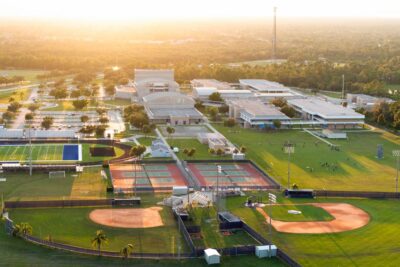Investments to improve student comfort, success, and retention
The views and opinions expressed are those of the author and do not necessarily represent the views or opinions of EAB.
While not a unique issue to Northern Arizona University (NAU), the data supports that a number of students who transition from high school to college struggle in STEM fields. Academic struggles lead to increased cost when students must repeat courses. The emotional cost to struggling students, their families, and the faculty cognizant of these struggles tarnishes a student’s positive experiences pertaining to higher education.
Universities should take an approach to meet students where they are at when they are accepted. For some, that means they may excel with minimal or no support. For others, they may lack the ability to be successful in a totally new environment that is monstrously different than high school. Furthermore, their high school experiences will vary greatly and provide different levels or methods or preparation.
College experiences by their very nature are entirely different than high school. Young adults move from a structured and familiar environment to an unfamiliar one with the autonomy to make more decisions on their own. Institutions of higher learning need to move away from blaming the young adult student new to a university for these struggles and recognize it the same way we recognize the challenges of being a new faculty or employee.
New faculty are assigned to a mentor in many institutions. New employees are provided new employee training. These methods to familiarize individuals are centered toward improving their sense of self-worth and ability to grow and be successful at the institution. If as academicians we recognize this among our peers, why do we simply throw students into a new environment and not thoroughly ensure they are ready to be successful simply because they have met admittance criteria? New employees have similarly met the requirement to be employed or admitted if you will, and we still train them.
First generation students and those from diverse or underrepresented backgrounds have higher DFW (earning a D, F, or Withdrawing) rates and higher attrition rates. A course grade of D or F means a student will need to repeat a course at a cost of tuition and time. A withdraw will also often delay matriculation.
A review of DFW rates in entry-level sciences identified Biology 181 (intro course – Unity of Life: Life of the Cell) as an entry-level course where students struggle. Post-course surveys as well as faculty interactions with students will often identify where students run amuck. From a qualitative perspective, students will not always purchase a book because they can’t or chose not to pay.
Students may lack study skills or not know how to prepare for a large exam, and often are not skilled in how to take notes during a large lecture. They will write too little or too much. The list of resources available on campus related to student success, tutoring, writing centers, and library resources or study groups are also not readily understood. Students are not certain if these are free, where they are located, what times they are available, and if any student can attend.
Implementing a boot camp to increase student comfort
To address these challenges, we implemented a bridge program with the goal of improving student comfort, success, and retention. A more specific question was, “Can the utilization of an immersive boot camp increase success, retention, and the confidence of freshman students at NAU?” The boot camp was open to all incoming freshmen with zero transfer credits who were STEM majors and enrolled in BIO 181 for fall 2021. Of the allocated space for 100 students, we had 75 females, 25 males, and 40 first-generation students. The reported ethnicities were 55 White, 1 Asian, 8 Black/African American, 24 Hispanic, and 12 listing two or more.
The boot camp took place the week before the semester started in fall 2021. Students were able to move into their assigned dorm room for the year and get it situated. They were also provided a meal plan for the week and the textbook and electronic resources they would need for the remainder of the semester in BIO 181 at no cost to the student. During the week, students participated in BIO 181 lectures, then a lab, then study sessions (where they were provided study skills training that included methods to take notes, seek help, and form study groups).
Students were also taken to various offices on campus to see the writing center, tutoring and student success center, and shown how to access and utilize resources in the library. It was a controlled exposure to what a large science lecture would be like and how the smaller labs functions to orientate them. It also provided them the resources to be successful. The overwhelming majority of students found the camp useful, enjoyed it, and felt more comfortable as they embarked on their first day of class kicking off the fall semester than they would have minus the boot camp.
99% have re-enrolled for spring 2022, an increase over two random samples of students meeting the same boot camp eligibility. Then while not statistically significantly different with what would be an underpowered study, the DFW rates were lower and the number of A’s and B’s awarded in the boot camp group were 4-11 points higher than the two random groups of 100.
In totality, it went well and appears to have prepared students and met our objectives. The cost was $30,000, which seems high. However, if you retain one or two students that would otherwise not matriculate, financially it’s a wise investment. It is also the right approach. Through out this process I communicated progress and asked questions of my capstone partner. The EAB materials of: Build Academic Confidence Through Pre-College Programs, Promoting Timely Degree Completion, First-Year Experience Programming, and 21 Strategies to Advance Underserved and Nontraditional Student Success were instrumental.
More Blogs

Beyond ROI: What the New Fed Data Misses About Higher Ed’s Value Crisis

Revitalize your athletics portfolio in a tumultuous landscape
